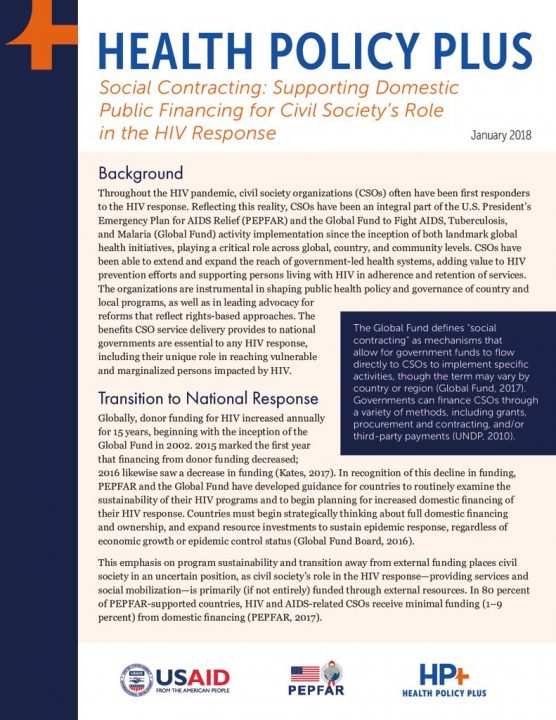
Social Contracting: Supporting Domestic Public Financing for Civil Society’s Role in the HIV Response
Summary
Donor Funding is on the Decline
As donor funding declines, countries need to plan for how they will transition away from external funding to increased domestic funding of their HIV response.
Civil Society's Funding Shortfall Threatens the HIV Response
From shaping public health policy to acting as first responders in the delivery of HIV services, civil society has and continues to play a critical role. But currently, there is a dangerously low level of domestic funding to civil society organizations in PEPFAR countries.
Social Contracting is Critical
Social contracting, a mechanism by which governments can directly fund civil society organizations to implement aspects of their HIV response, can help maintain civil society's critical role and accelerate progress toward epidemic control.
Transition to National Response
Globally, donor funding for HIV increased annually for 15 years, beginning with the inception of the Global Fund in 2002. 2015 marked the first year that financing from donor funding decreased; 2016 likewise saw a decrease in funding (Kates, 2017). In recognition of this decline in funding, PEPFAR and the Global Fund have developed guidance for countries to routinely examine the sustainability of their HIV programs and to begin planning for increased domestic financing of their HIV response. Countries must begin strategically thinking about full domestic financing and ownership and expand resource investments to sustain an epidemic response, regardless of economic growth or epidemic control status (Global Fund Board, 2016).
